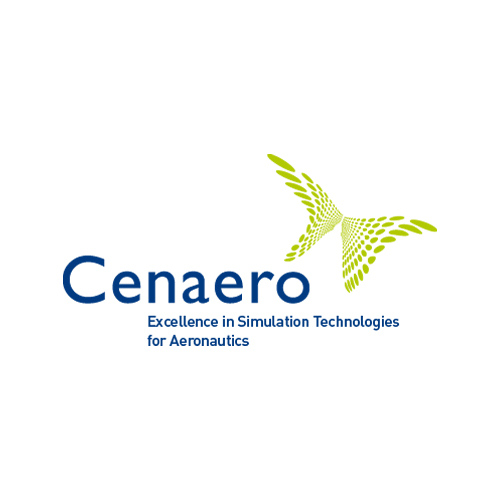The TRAIL Institute was created to support researchers working in AI and boost companies in this sector within the Wallonia-Brussels Federation. One of the organisations involved, the CENAERO research centre based in Gosselies, reveals their AI-related activities and their involvement in initiatives beyond our borders.
The TRAIL Institute was officially inaugurated on 10 September at the Eurometropolitan e-Campus in Tournai, in the presence of the highest academic and political authorities of the Wallonia-Brussels Federation.
This project, initiated in part by Professor Benoît Macq (Professor at the Louvain School of Engineering and TRAIL co-coordinator) and supported by the DigitalWallonia4.ai programme (led by the Agence du Numérique), brings together researchers and entrepreneurs from five universities (UCLouvain, ULB, ULiège, UNamur and UMons), four research centres (CENAERO, CETIC, Sirris and Multitel) and various partners of the Wallonia-Brussels Federation.
Inspired by the "alumni" model and IMEC in Flanders, TRAIL (Trusted AI Labs) is based on an ecosystem approach in which each participant focuses their energy on a common goal. This goal is to place Wallonia and Brussels on the AI industry map through these key players. In short, this project is indisputably the missing link that the Wallonia Brussels Federation needed to build on initiatives and encourage entrepreneurship in the AI sector.
The TRAIL Institute at the heart of our R&E community
In addition to the five French-speaking universities, two of the four research centres (CETIC and Cenaero) involved in TRAIL are connected to our network. We put some questions to the CENAERO to gain a better understanding of their involvement in artificial intelligence-related research.

the CENAERO research centre "Simulation technologies for Aeronautics"
What are your current projects in artificial intelligence research?
The design of more efficient and competitive products/processesWe develop methodologies and numerical simulation tools to design more efficient and competitive products and processes. Numerical simulation, in conjunction with artificial intelligence, is used to generate high-fidelity 'synthetic' databases which can then be used, alone or in combination with other data sources, particularly those from sensors, by a whole range of artificial intelligence methods. So our ambition is clearly to develop this synergy with a view to generating "digital twins", which are used as much for the optimised design of manufacturing processes and products as for predictive maintenance operations on production lines or systems active in their real environment.
CENAERO is based on vast expertise in High Performance Computing (HPC) and uses a state-of-the-art machine.
The current supercomputer has around 14,000 computing cores in 15 racks, which led to it being ranked 300 in the top 500 of the world's largest computers in October 2014.
This machine is now coming to the end of its life and a renewal project is currently in the starting blocks. The main objectives of this facility are not only to expand the basic research but also to help companies develop their activities.
Expertise in artificial intelligence"(...) to expand the basic research but also to help companies develop their activities."
Kevin Mailleux - System Administrator HPC Infrastructure - CENAERO
We are also developing expertise in artificial intelligence. The main technologies mastered by CENAERO are machine learning techniques (which make it possible to predict and/or classify) and evolutionary algorithms coupled with "real time" models for product/process optimisation.
Machine learning is used in our company for a wide range of applications, including optimisation, decision support, anomaly/defect detection, predictive maintenance, event prediction, control, and uncertainty management.
Cooperation with the manufacturing industry and various construction companiesWe are working with different sectors and companies. Firstly, with a manufacturing business for defect detection. The idea is to automatically detect defects in a product in operation using machine learning techniques trained on the basis of experimental campaigns.
Secondly, with various construction companies, using the energy data collected by IoT meters and sensors and simulation models for several different uses. These involve the control of heat production systems with the aim of saving energy costs while guaranteeing a certain level of comfort.
Do you regularly work with research centres abroad?

EuroCC: competence centers within the framework of EuroHPC
On an international level, CENAERO is starting to work with the Institut de Recherche Technologique (IRT) Saint Exupéry (Toulouse), a technological research accelerator for aeronautics, space and embedded systems. Within the framework of this collaboration, we are developing methods for predictive models, optimisation and uncertainty management based on artificial intelligence and machine learning concepts.
The aim of other initiatives, such as EuroCC (competence centres within the EuroHPC framework), launched in September, is collaboration between research stakeholders throughout Europe. The objective is to increase the skills of the various players and facilitate their access to HPC (High Performance Computing) resources, which therefore contributes to the development of AI (and more).
"Belnet gives us connectivity between Belgian research centres and universities at very competitive prices."
Kevin Mailleux - System Administrator HPC Infrastructure - CENAERO
Could we say that Belnet helps to facilitate research in this field via the R&E network?
Belnet gives us connectivity between Belgian research centres and universities at very competitive prices.